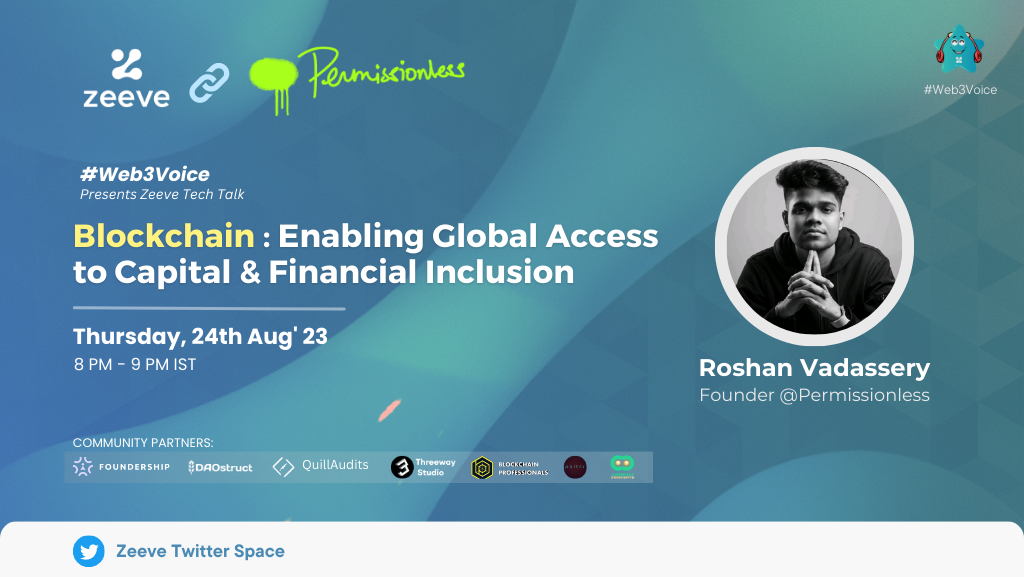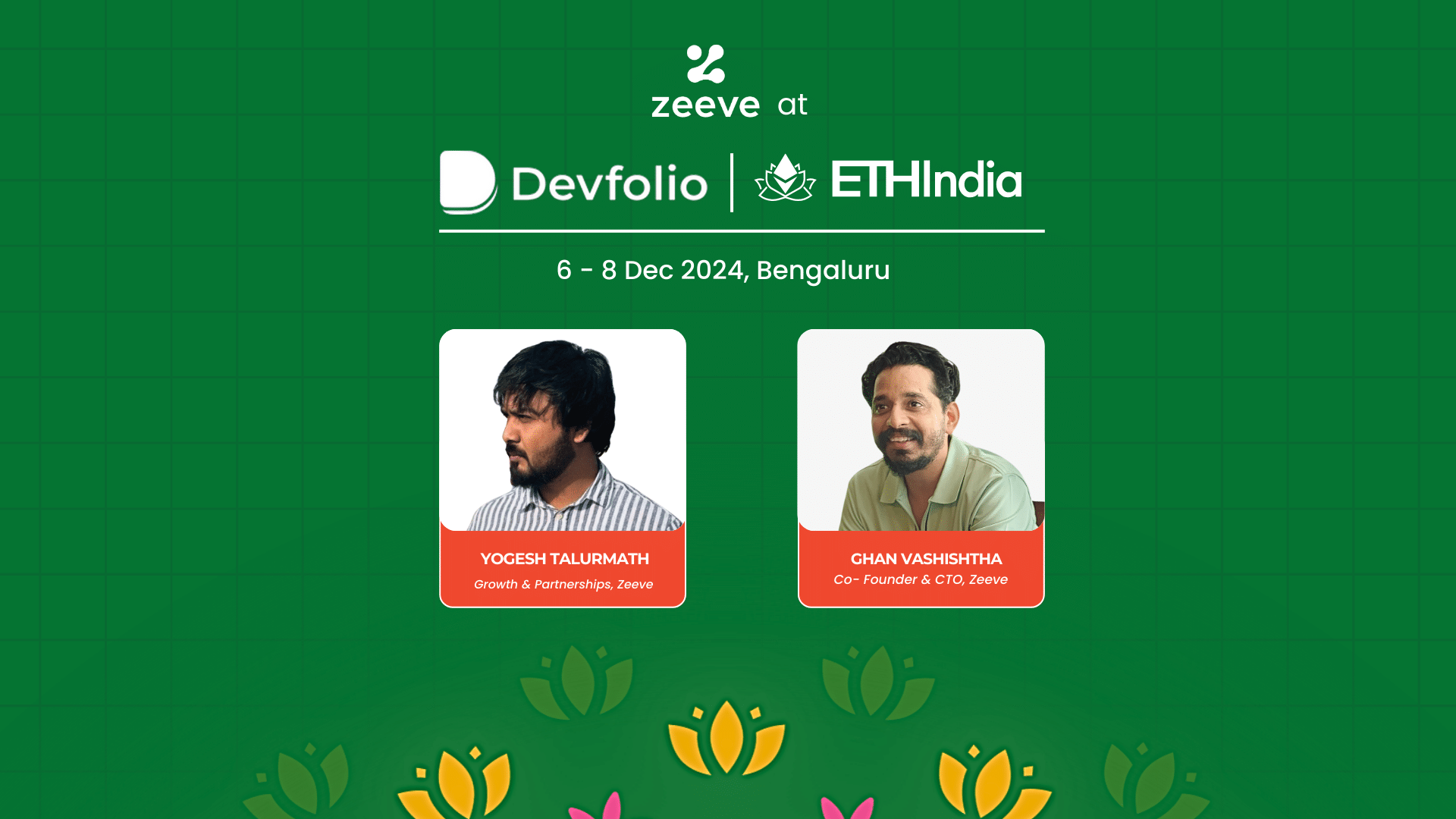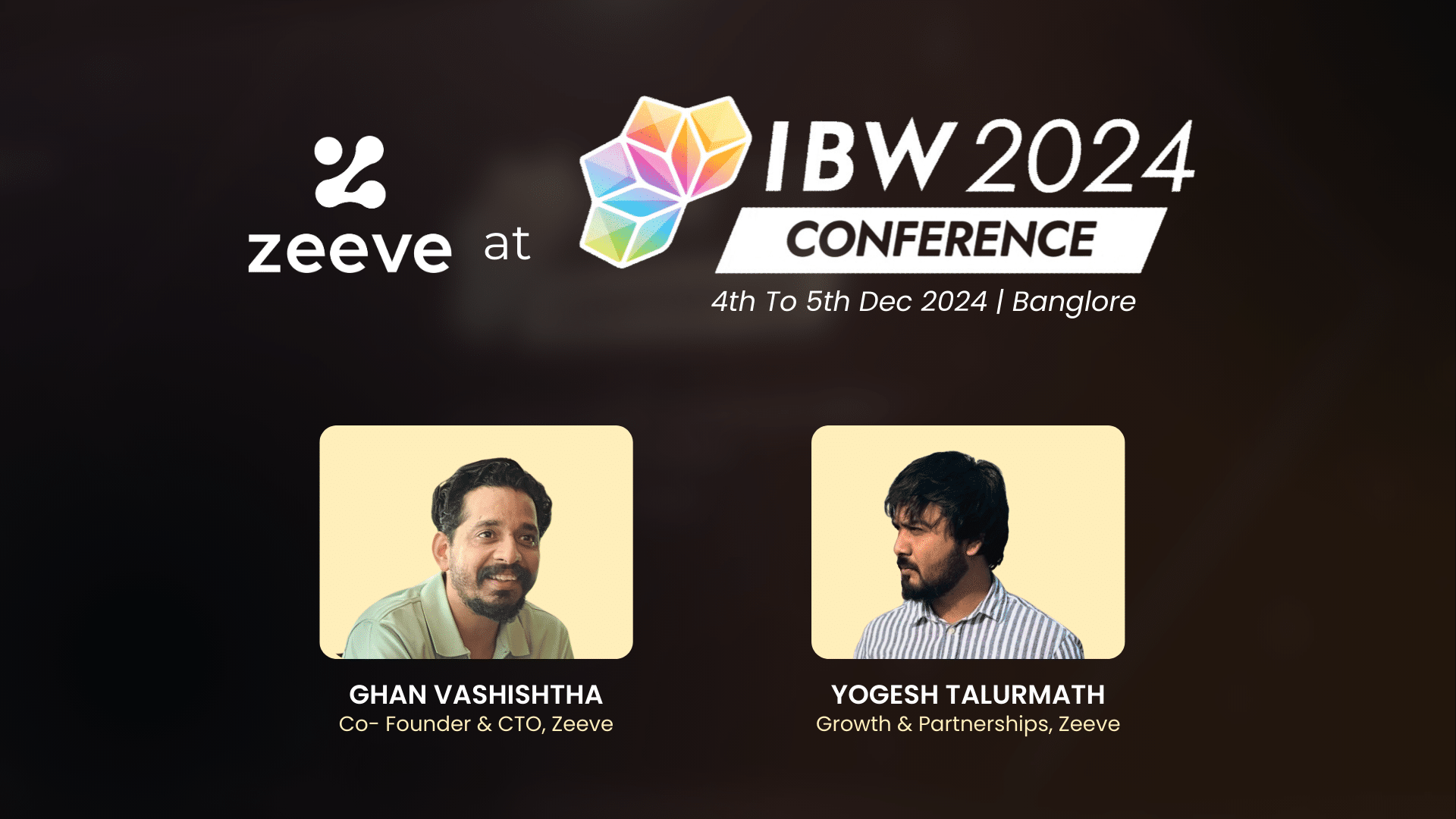On 24 August 2023, Zeeve held a Twitter AMA session where Karthik MS, Social Media Manager of Zeeve, hosts the session on “ Blockchain: Enabling Global Access to Capital & Financial Inclusion.”
Karthik begins the session by welcoming all individuals interested in blockchain, Metaverse, and related industries. He then introduces guest speaker Roshann Vadassery, founder of Permissionless.
Karthik expresses his honor of having Roshann join the session, stating that he enjoys listening to Roshann’s insights on various social media platforms. He officially welcomes Roshann to the discussion and asks for his thoughts before delving into the topic.
Roshann begins by addressing the importance of frictionless systems and the movement toward online transactions. He explains that fast and efficient processes are crucial as the world becomes more digitally oriented.
Roshann highlights that blockchain technology is key in making capital available online, mentioning the benefits of decentralization and its potential to accelerate financial inclusion.
He explains that traditional banks often involve lengthy processes and complicated procedures for accessing and managing money. In contrast, blockchain technology offers more efficient and faster solutions for financial transactions, making it more accessible to people across the globe. Roshann expresses his excitement about the transition to online capital diffusion and the potential for blockchain to play a significant role in this process.
Moving forward, Roshann discusses the concept of decentralization and its impact on the blockchain landscape. He mentions that many recent blockchain developments have focused on tokens as underlying assets. However, he predicts a shift towards more application-based solutions, highlighting Coinbase’s Phase 4 development focused on application space. Roshann suggests that more decentralized applications will be created, ultimately increasing decentralization within the blockchain network.
The conversation shifts towards specific use cases of blockchain technology in financial inclusion. Roshann emphasizes commerce as a crucial use case, expressing his belief that facilitating the global trade of goods and services through blockchain technology will be a game-changer.
He believes commerce and trade, rather than traditional financial services, will drive financial inclusion and blockchain adoption.
Regarding application-specific blockchains (app chains), Roshann offers his perspective. He explains that he’s not a proponent of companies having private blockchains, as the essence of blockchain lies in public ledger systems. He advocates for building applications on existing public networks like Ethereum and scaling solutions.
Roshann delves into cross-border transactions and the challenges of high fees and delays associated with traditional banking systems. He discusses how blockchain technology can enhance the efficiency and cost-effectiveness of international money transfers, benefiting migrants and families across regions.
He envisions a coexistence of central bank digital currencies (CBDCs) and public blockchains, suggesting that both systems can cater to different needs.
The discussion evolves to CBDCs and their potential role in the financial landscape. Roshann explains that CBDCs can coexist with public blockchains but highlights the importance of maintaining decentralization to harness blockchain technology’s benefits fully.
He predicts that governments will gradually realize the necessity of adopting blockchain in some capacity to stay relevant in the technological evolution.
The conversation takes a political turn, with Roshann discussing the Indian government’s role in technology advancement. He observes that the current government demonstrates a pro-technology approach and highlights the importance of marketing in promoting technology adoption. Roshann suggests that a technology-driven revolution led by bold investors and entrepreneurs could significantly impact India’s economic landscape.
When discussing the semiconductor industry, Roshann acknowledges that India lags behind superpowers like China and the USA. He believes a disruptive and cash-rich investor or entrepreneur could change the game and propel India forward in technological development.
However, Roshann remains cautious about the challenges posed by deep-rooted thinking patterns in India.
Lastly, Roshann emphasizes the need for systemic change and acknowledges that the shift will take time. He hopes for a future where Indian entrepreneurs, investors, and politicians collaborate to drive technological progress and economic growth.
Thus, wrapping up the session, Karthik expresses gratitude to the audience for their time and listening attentively.
To find Roshann Vadassery’s detailed answers to Karthik`s questions on “Blockchain: Enabling Global Access to Capital & Financial Inclusion.”
Click the link below and listen to the Zeeve Tech Talk episode.







